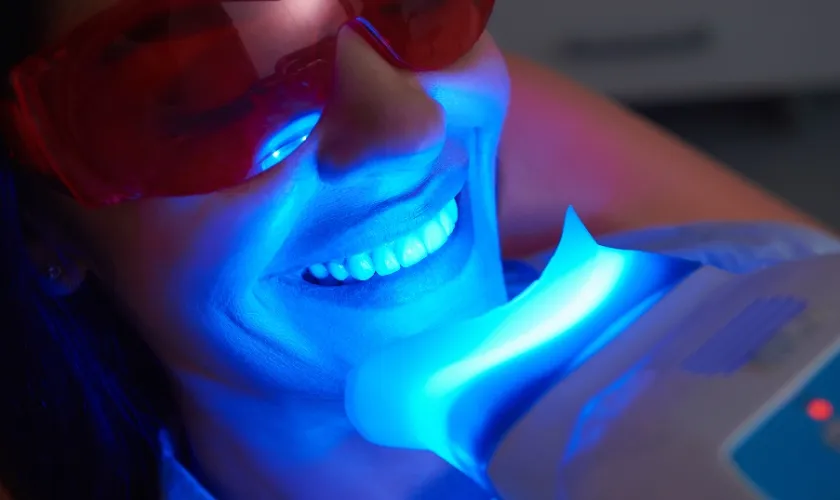What is Laser Teeth Whitening
Laser teeth whitening, also known as power bleaching, is a popular cosmetic dentistry procedure designed to lighten the color of your teeth. It’s a procedure done in a dental office. The process typically involves applying a strong bleaching agent, usually hydrogen peroxide, to the teeth. A special laser light is then used to activate the bleaching agent, accelerating the whitening process. This method is often preferred for its speed and effectiveness, offering noticeable results in a single session. This advanced technique has become a go-to solution for those seeking a brighter, more confident smile, dealing with discoloration caused by aging, lifestyle choices, or genetics. The procedure is considered safe when performed by a qualified dental professional and provides results that are difficult to achieve with over-the-counter products. The procedure is typically completed in an hour or two.
How Laser Teeth Whitening Works
The effectiveness of laser teeth whitening lies in the combination of a potent bleaching agent and the use of laser technology. The process begins with the dentist isolating the teeth to protect the gums and soft tissues. A high-concentration hydrogen peroxide gel is then applied to the surface of the teeth. The laser light is then directed onto the teeth, which helps to accelerate the chemical reaction of the bleaching agent. The laser’s heat helps break down the stains and discoloration that have accumulated on the enamel and dentin. The entire process is carefully monitored by the dentist to ensure the patient’s comfort and safety. After the laser treatment, the teeth are rinsed, and a fluoride treatment is often applied to reduce sensitivity. The results are often seen immediately after the procedure, with teeth appearing several shades lighter.
The Pros of Laser Teeth Whitening
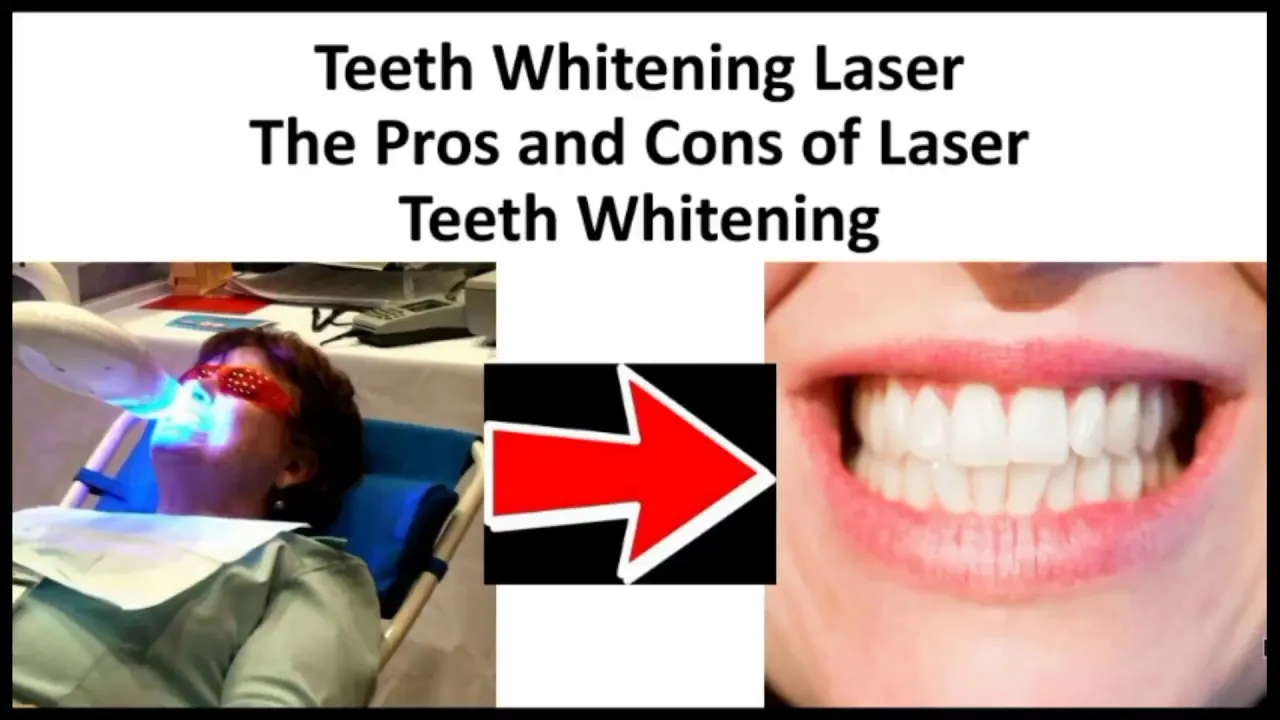
Fact 1 Effective and Fast Results
One of the biggest advantages of laser teeth whitening is its speed and efficiency. Unlike other methods, such as take-home whitening trays or over-the-counter products, laser whitening offers immediate results. In a single visit to the dentist, patients can achieve a significantly brighter smile. This is because the laser light accelerates the whitening process, breaking down stains and discoloration faster than other methods. This makes laser teeth whitening an ideal choice for individuals who want to see quick and dramatic improvements in the appearance of their teeth. The effectiveness is also high, capable of addressing a wide range of stains, from those caused by coffee and tea to those from smoking and aging. The speed of the procedure is a major benefit, allowing patients to achieve a more confident smile in a short period.
Fact 2 Professional Application
Laser teeth whitening is performed by trained dental professionals, ensuring a safe and controlled procedure. Dentists have the expertise to assess the patient’s oral health, identify any underlying issues, and determine if laser whitening is the appropriate treatment. The dentist also takes precautions to protect the gums and soft tissues during the procedure. This professional application minimizes the risk of complications and maximizes the effectiveness of the treatment. Dentists also use higher concentration bleaching agents than those available over the counter, leading to better and more consistent results. This professional setting provides patients with the assurance that the procedure is being handled correctly, and any potential issues are addressed promptly. The dentist can also provide post-treatment instructions and recommendations to help maintain the whitening results.
Fact 3 Long-Lasting Results
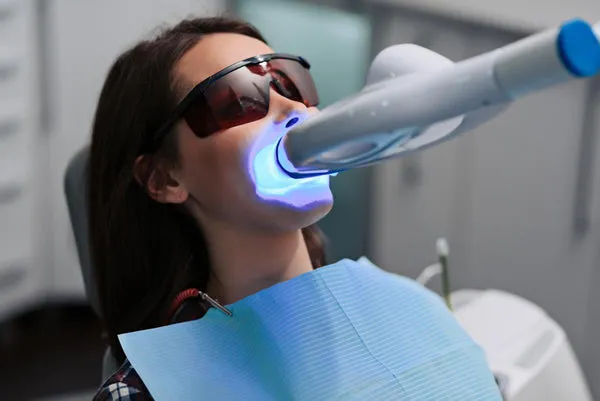
While the longevity of the results can vary depending on individual habits and lifestyle factors, laser teeth whitening often provides longer-lasting results compared to other whitening methods. The deep penetration of the bleaching agent, combined with the activation by the laser, helps to achieve a more profound whitening effect. With proper maintenance, such as regular dental check-ups and good oral hygiene practices, the results of laser teeth whitening can last for several months or even years. Avoiding or limiting stain-causing foods and beverages, such as coffee, tea, and red wine, also helps to extend the lifespan of the whitening. The use of at-home touch-up treatments, as recommended by the dentist, can also help maintain the brightness of the teeth. The long-lasting results make laser teeth whitening a worthwhile investment for many individuals seeking a brighter, more youthful smile.
Fact 4 Boosts Confidence
A brighter, whiter smile can significantly boost a person’s self-esteem and confidence. Laser teeth whitening can dramatically improve the appearance of teeth, helping individuals feel more comfortable and self-assured in social and professional settings. A more attractive smile often leads to increased feelings of self-worth and positive self-image. This boost in confidence can have a ripple effect, positively influencing various aspects of life, from personal relationships to career opportunities. People with whiter teeth are often perceived as healthier, more successful, and more approachable. This can lead to improved social interactions and a greater willingness to smile, laugh, and engage with others. The psychological benefits of laser teeth whitening are substantial, making it a valuable procedure for those looking to enhance their overall well-being and self-perception.
The Cons of Laser Teeth Whitening
Fact 1 Sensitivity and Discomfort
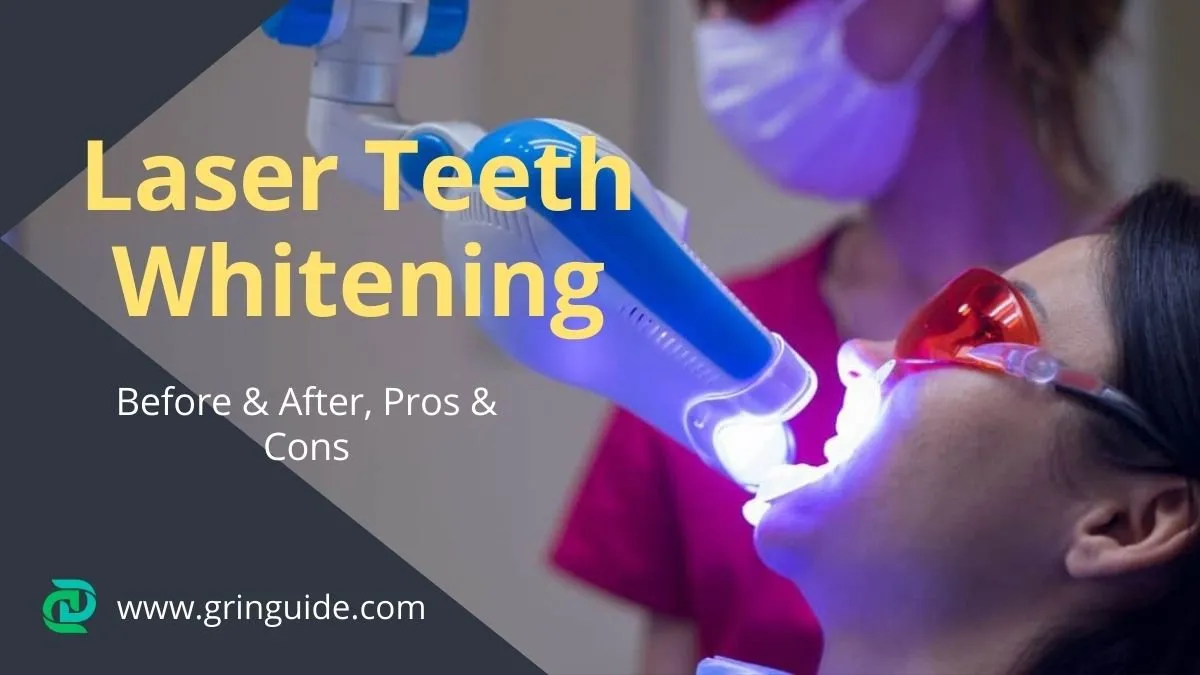
One of the most common side effects of laser teeth whitening is temporary tooth sensitivity. The bleaching agent can cause the teeth to become more sensitive to hot and cold temperatures. This sensitivity can range from mild discomfort to more intense pain, typically lasting for a few days after the procedure. Patients with pre-existing tooth sensitivity may experience more pronounced discomfort. To manage this, dentists often recommend using desensitizing toothpaste before and after the procedure. They may also apply fluoride treatments to help reduce sensitivity. In some cases, patients may experience gum irritation or inflammation. However, these symptoms usually subside within a few days. It is crucial to discuss any concerns about sensitivity with the dentist before undergoing the procedure.
Fact 2 Costly Procedure
Laser teeth whitening is generally more expensive than other whitening methods, such as over-the-counter products or at-home whitening trays. This is due to the specialized equipment, the use of high-concentration bleaching agents, and the expertise of the dental professional. The cost of laser whitening can vary depending on the dentist’s fees, the geographic location, and the extent of the treatment. While the initial investment can be significant, it is important to consider the long-term benefits, such as the speed of results and the longevity of the whitening. Some dental insurance plans may cover a portion of the cost, particularly if the procedure is deemed medically necessary. Patients should discuss the cost and payment options with their dentist beforehand to avoid any financial surprises. It is also essential to consider the value of a brighter smile and the potential impact on self-esteem and confidence.
Fact 3 Potential for Enamel Damage
While rare, there is a potential risk of enamel damage with laser teeth whitening, especially if the procedure is not performed correctly or if the patient has underlying dental issues. Overuse or misuse of the bleaching agent can weaken the enamel, making the teeth more susceptible to decay and erosion. Dentists take precautions to minimize this risk by carefully controlling the concentration of the bleaching agent and the duration of the treatment. They also assess the patient’s oral health to ensure the procedure is safe and appropriate. Patients with thin enamel, cavities, or other dental problems may be at higher risk of enamel damage. It is essential to follow the dentist’s instructions carefully and to maintain good oral hygiene practices to protect the enamel. The potential risk of enamel damage is relatively low when the procedure is performed by a qualified dental professional.
Fact 4 Not Suitable for Everyone

Laser teeth whitening is not suitable for everyone. Certain individuals may not be good candidates for the procedure due to various factors, such as dental health conditions, existing dental work, or specific lifestyle habits. Patients with tooth decay, gum disease, or significant dental work, such as fillings, crowns, or veneers, may not be ideal candidates. The bleaching agent does not whiten these materials, which could result in uneven results. Pregnant or breastfeeding women are generally advised to avoid teeth whitening treatments. Individuals with sensitive teeth or those with underlying medical conditions should consult with their dentist before considering laser teeth whitening. The dentist will assess the patient’s overall oral health and determine if laser whitening is a safe and effective option.
Fact 5 Gum Irritation and Recession
Gum irritation and recession can occur as a side effect of laser teeth whitening, although it is generally temporary and mild. The high concentration of the bleaching agent can sometimes cause irritation or inflammation of the gums, leading to redness, swelling, and tenderness. This is often due to the bleaching agent coming into contact with the gum tissue. Dentists take precautions to protect the gums during the procedure, such as using protective barriers and carefully applying the bleaching agent. In rare cases, repeated whitening treatments or aggressive brushing can contribute to gum recession. Patients should follow the dentist’s instructions carefully and use a soft-bristled toothbrush to minimize the risk of gum irritation and recession. The dentist may also recommend specific oral hygiene practices and products to promote gum health.
Laser Teeth Whitening Alternatives
If laser teeth whitening isn’t the right choice, several alternative teeth whitening methods are available. Take-home whitening trays, prescribed by a dentist, offer a more gradual whitening process using a custom-fitted tray and a lower concentration of bleaching agent. Over-the-counter whitening products, such as strips and toothpastes, are readily available but offer less potent results. For those seeking a more natural approach, teeth whitening products containing activated charcoal or baking soda can help remove surface stains. Another option is professional cleaning from a dentist, which removes plaque and surface stains, improving the teeth’s appearance. The best alternative depends on individual needs, budget, and desired results. Consulting with a dentist can help determine the most suitable whitening method based on your oral health and expectations. Each method offers varying degrees of effectiveness and convenience.
Conclusion
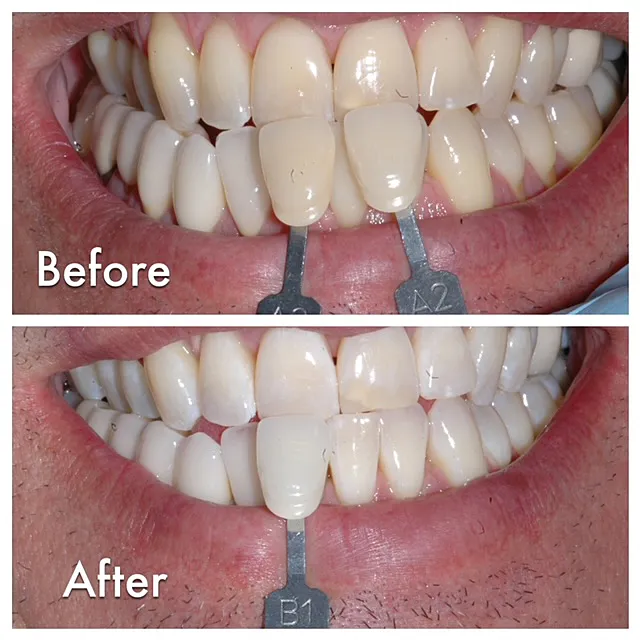
Laser teeth whitening is a powerful cosmetic procedure that can significantly improve the appearance of your smile. However, like any cosmetic treatment, it has both pros and cons. The benefits include fast and effective results, professional application, and long-lasting effects. The drawbacks may include temporary sensitivity, cost, and the potential for side effects. Before making a decision, consider your dental health, lifestyle, and budget. If you’re considering laser teeth whitening, consult with your dentist to determine if it’s the right choice for you. They can assess your oral health, explain the process, and provide personalized recommendations. Understanding the pros and cons can help you make an informed decision and achieve a brighter, more confident smile.
